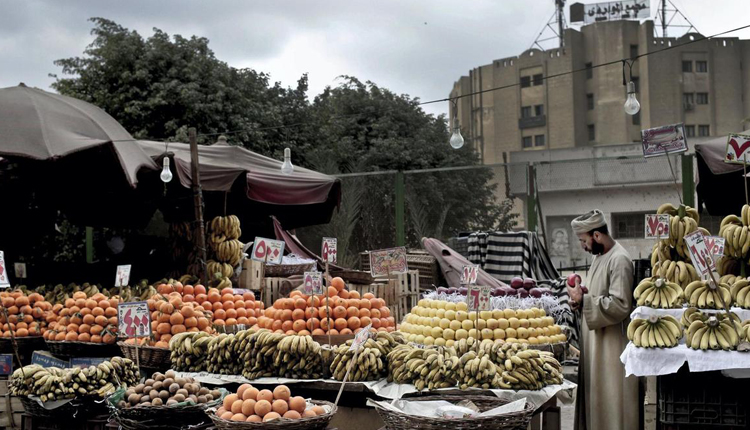Egypt’s annual urban consumer price inflation increased to 12.7 percent in January from 12.0 percent in December, the CAPMAS statistics agency said on Sunday, though the data was unlikely to quell speculation the central bank may soon cut rates.
Inflation had cooled in December after an increase in fuel, electricity, and transportation prices last year had sent the rate up to a high of 17.7 percent in October.
Egypt has implemented a series of tough austerity measures, including deep cuts to energy subsidies, to help meet the terms of a $12 billion IMF loan programme it signed in late 2016.
Allen Sandeep, head of research at Naeem Brokerage in Cairo, said: “The rise in inflation is because of food and nonalchoholic beverages, wherein month-on-month inflation came in at 0.9 percent versus -6.7 percent in December.”
“Overall, while this is neutral from a consensus expectations standpoint, speculation will continue over a rate cut on Thursday,” he said.
The central bank’s monetary policy committee will meet to decide on interest rates on Thursday.
The bank, which is aiming for inflation of 13 percent plus or minus 3 percentage points, last moved rates in March, slashing the overnight deposit and lending rates by 100 basis points each to 16.75 percent and 17.75 percent respectively.
It said after its December meeting that policy rates were in line with “achieving targeted disinflation”.
Radwa El-Swaify, head of research at Pharos Securities Brokerage, agreed that food and beverages were the main reason for the rise in inflation.
“What is happening is price adjustment by manufacturers with the beginning of the new year to adjust profit margins,” she said.
“Do not forget that manufacturers’ profit margins fell from July 1 with the reduction of subsidies, and some did not raise prices then, fearing a decline in sales.”
Egypt’s last round of fuel and electricity subsidy cuts in June, as well as an increase in metro fares in May, led to a surge in inflation.
Continuous increases in fruit and vegetable prices had prompted the interior ministry and the military to sell some basic foods at below-market prices, in a bid to ease citizens’ suffering.
Millions of people in Egypt, the Arab world’s most populous country, live below the poverty line. They are struggling to meet basic needs after successive increases in the prices of vegetables, fruit, fuel and medicine.
Source: Reuters
